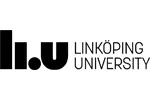We're moving! This site will be relocating to goingto.university in 2026. Please update your bookmarks to the new address.


| The award | How you will study | Study duration | Course start | Domestic course fees | International course fees |
|---|---|---|---|---|---|
| MA | Full-time | 2 years | August | - | SEK 160000 total |
The master’s programme is interdisciplinary, integrating the humanities and the social sciences, and is animated by a commitment to critical, innovative and useful approaches to issues and problems within the broad field of ethnic and migration studies.
Students will gain a comprehensive grasp of the field of ethnic and migration studies and will be well prepared for positions in local, national and international organisations, administration, business, government, media and the cultural sector, as well as for further postgraduate studies and research.
The programme consists of a mix of mandatory courses and electives that will allow you an individual specialisation, options to study abroad, options for internships, and research tutorials with faculty. Teaching involves formats with a high level of student participation. Teaching forms include lectures, workshops, seminars and individual/group tutorials.
Areas of focus include historical and sociological perspectives on the ways in which migration shapes society; in-depth knowledge in the field of intersectional migration studies; globalisation and its link to changing conditions for work and migration; the European Union asylum policies;, theories of biopolitics, citizenship and exclusion; and the relation of race, ethnicity and migration to cultural and aesthetic expressions such as narratives, visual arts, theatre and cinema.
The faculty will be joined by international guest professors to make up an interdisciplinary and internationally experienced team, covering all aspects of the programme’s curriculum and beyond. The program thus offers a direct interface with ongoing research.
Citizens from countries outside the EU/EEA and Switzerland must pay tuition fees for higher education in Sweden. Exceptions might apply. For detailed information please check www.universityadmissions.se. Higher education studies for citizens of EU/EEA countries and Switzerland are free of charge.
Generally, tuition fees at Linköping University are between SEK 80,000 and 136,000 per academic year.
Tuition fees at Linköping University include the following benefits:
Bachelor's degree equivalent to a Swedish Kandidatexamen within the humanities, fine arts, social sciences, behavioural sciences, health sciences or natural sciences or equivalent qualifications is required.
English corresponding to the level of English in Swedish upper secondary education (English 6/B).
Below are some suggested courses at other providers that you may also be interested in:
Graduate Diploma in Foundations of Canadian Law GDL
Osgoode Professional Development, York University
Find out moreInstitute of European Studies, Jagiellonian University
Find out moreDigitalisation in Work and Society Master Degree
Erasmus School of Social and Behavioural Sciences (ESSB), Erasmus University Rotterdam
Find out moreIf you do not meet the entry requirements for this course then consider one of these postgraduate preparation courses from another institution:
Graduate Diploma of Engineering (Industrial Automation)
Engineering Institute of Technology
Find out moreThere are 28 other courses listed from Linköping University. A selection of these are displayed below:
Business Administration - Strategy and Management in International Organisations MSc
Linköping University
Find out moreJoin the StudyLink email list and never miss a chance to turn your study abroad dreams into reality!
